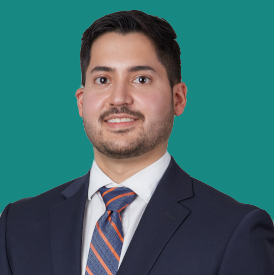Dr. Ismael Rodriguez has trained at some of the nation’s top medical schools and cancer centers but has returned to his roots where his calling to help cancer patients began.
His journey is a personal one. Dr. Rodriguez first had an interest in chemical engineering but after his grandmother fell ill, he became entrenched in healthcare. He felt an overwhelming, debilitating feeling when he was unable to help her. And it was during a rotation in oncology that he found a desire to focus on treating patients with cancer.
“I remember asking myself if I would be happy focusing on cancer, and more specifically on cancer research,” Dr. Rodriguez said. “I have focused in malignant hematology reseach and treatment, but the shift to Phase I research has been so rewarding. The ability to offer new treatments to patients in need, an opportunity to offer additional hope, is my focus right now.”
The interactions and relationships he forms with patients is what he values most. He recalls the impactful experiences during his third year of medical school that drew him toward an interest in cancer research.
“The patients and families I treated, spoke with, cared for and built trusting relationships with had a profound impact on my career,” he said. “They are my ‘why.’”
He understands that Phase I clinical research often presents some barriers or challenges for patients. Dr. Rodriguez often answers questions about treatments being new, or what patients and family members perceive as experiments.
“Phase I clinical research means the treatments are new, but if we can try new therapies safely, we should,” he said. “I follow the sentiment stated long ago … ‘If we can cure, we can cure. If we can treat, we can treat. If we can help with the symptoms, we will treat the symptoms.’”
Most research and clinical trials are offered at academic institutions. But Dr. Rodriguez says the best part about returning to his roots here in South Texas is the ability to conduct clinical research and advance cancer therapies in a private practice setting.
“Patients now have access to new therapies at NEXT Oncology without having to travel for care,” he said. And he is grateful for the close connection to his patients.
Dr. Rodriguez earned his medical degree from the University of Texas Southwestern Medical School in Dallas and completed his internal medicine residency at the University of Texas Southwestern Medical Center Programs in Austin. He was the internal medicine chief resident at the Dell Medical School in Austin. Dr. Rodriguez completed his Hematology and Medical Oncology fellowship at New-York-Presbyterian / Weill Cornell Medical School in New York, where he also served as chief fellow, and practiced three years at Memorial Sloan Kettering Cancer Center as an assistant attending physician before joining NEXT Oncology.

